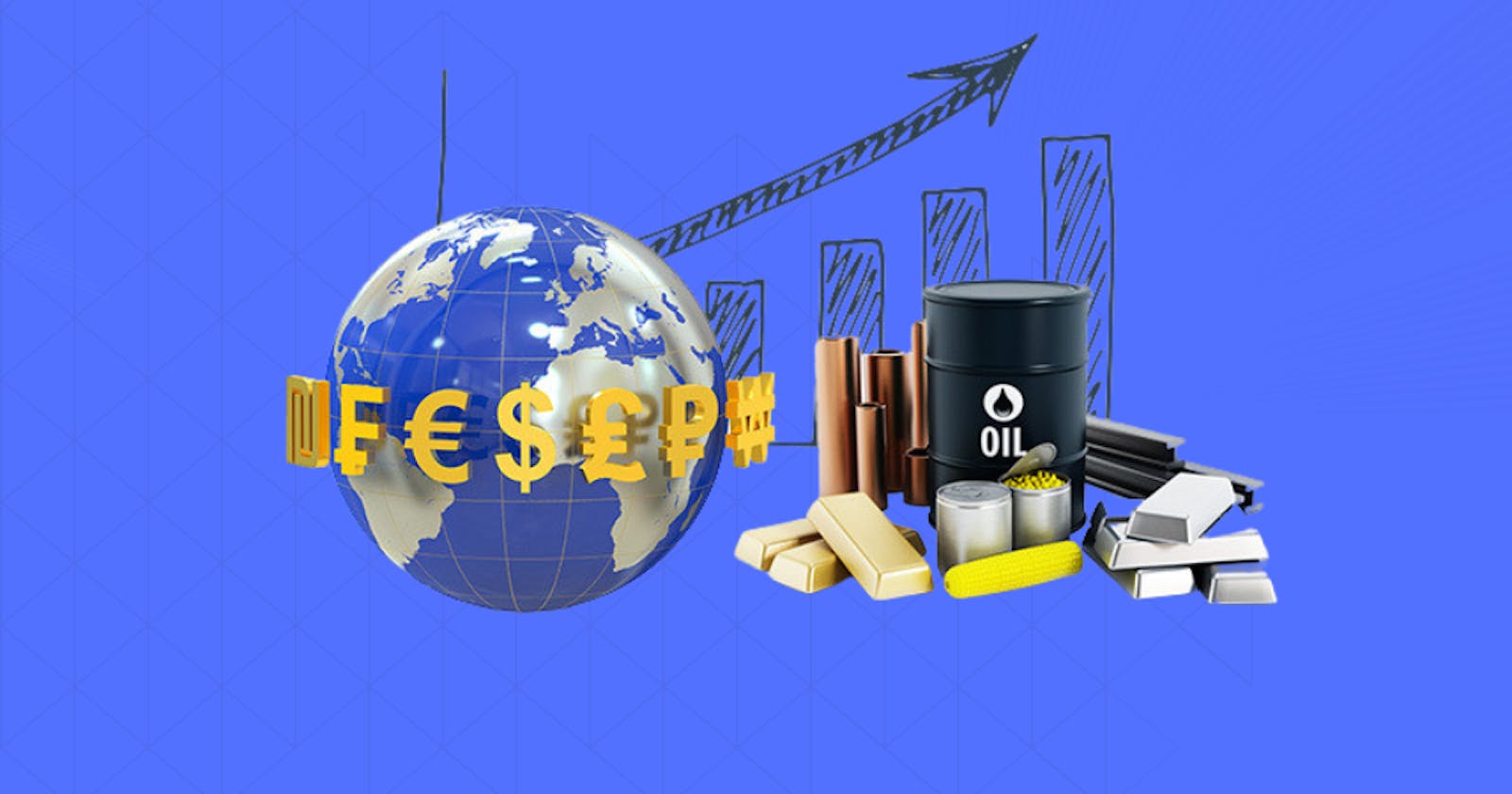The products traded in forex and commodity markets differ greatly. Both forex rates and commodities can be traded as futures contracts, but commodities cannot be traded on the forex market.
A commodities market trades goods such as coffee, cocoa and mining products such as gold and oil. Forex is a global market that trades dollars, euros, and yen. Both markets' methodologies and analyses are similar. Which market you prefer depends on these criteria.
Main points
Forex and commodities can be traded on a futures exchange. However, commodities are not traded on the forex market.
Forex trading is less regulated than commodity trading.
When trading, both groups use leverage, but forex traders use far more than commodities traders.
Commodity exchanges have limitations, but forex is over-the-counter.
If you want to trade both markets, use commodity-based currencies.
Commodity Trading
There are 50 well-known commodity markets worldwide. These markets allow 100 different primary trading commodities. The commodities traded in the market are energy, agricultural produce, metals, and bullion.
Energy includes natural gas, oil, gasoline, and heating oil. These items' pricing is impacted by economic trends and global oil supplies. OPEC, alternative energy, and economic dangers should be monitored by investors.
Traders invest in cotton, coffee, chocolate, soybeans, black pepper, castor seeds, and cardamom. Bullion is gold, silver, and platinum. Other metals such as copper, lead, zinc, and nickel are traded on the commodities market.
To invest in a commodity, buy a futures contract. This is a contract to sell or buy a commodity at a predetermined price on a future date. Commodity trading involves three players. Commercials or Hedgers are entities involved in the processing, production, or commercialization of a commodity. Corn growers function as commercials for the commodity. Commercials dominate commodity trading.
Large speculators pool their money to reduce risk and increase profits. These major speculators use money managers like mutual funds to make investing decisions.
Small speculators are commodity traders who use a broker or their own accounts. Major and minor speculators can affect the commodities market.
Commodity Trading Advantages
- Commodities are wonderful portfolio diversifiers.
- Global markets are accessed.
- Longer market hours for commodities allow for more trading.
- Most commodities exhibit seasonal trends.
- Some commodities can be traded with more leverage than securities.
- Commodities have minimal transaction costs.
- Commodities are good to carry trades.
Commodity trading disadvantages
- Commodities diversify portfolios, but their concentration in a few industries inhibits asset diversification.
- Volatile commodity prices can cause price swings.
- Historically, commodities have had lower long-term returns than stocks during periods of extreme volatility. Greater leverage increases speculators' risk.
Forex trading?
Forex is a network of buyers and sellers who exchange currencies at an agreed price. If you've traveled abroad, you've probably done a forex transaction.
While some foreign exchange is done for practical reasons, most are done for profit. Daily currency conversions might make some currency currencies volatile. Volatility can make forex attractive to traders by boosting the prospect of huge rewards and risk.
Trading Forex has advantages.
- Global Financial Market Variety of Currency Pairs to Trade
- For Beginners
- Capital Barriers
- Most accounts are commission-free
- Market Flow
- The volatility of the Forex Market
- Hedging
- You Trade 24 hours suits different trading styles
- Trading technology is convenient and well-regulated.
- No centralized exchange
- Low-cost transactions
Forex's disadvantages
Dishonesty The Forex market uses decentralized tech. Due to the following considerations, FX lacks transparency.
Counterparty dangers. FX is a worldwide market with fast fluctuations and varied restrictions in each jurisdiction. Forex trading rules safeguard investors and traders. However, someone could break the contract.
Risks operational. The forex market operates 24/7. Traders can't watch everyday developments, so they utilize algorithms to protect investments. Thus, they must be informed about how the equipment works or face big losses at night or on weekends.
Risk-taking. Forex gives large leverage to traders. New investors may not understand this investment tool's dangers and lose everything in minutes.
In the end as a summary I have to say that simply A commodities market is a place where goods and mining products such as gold and oil are traded. Examples of commodities include coffee and cocoa. Forex, also known as the foreign exchange market, is a global market where various currencies, such as the dollar.
